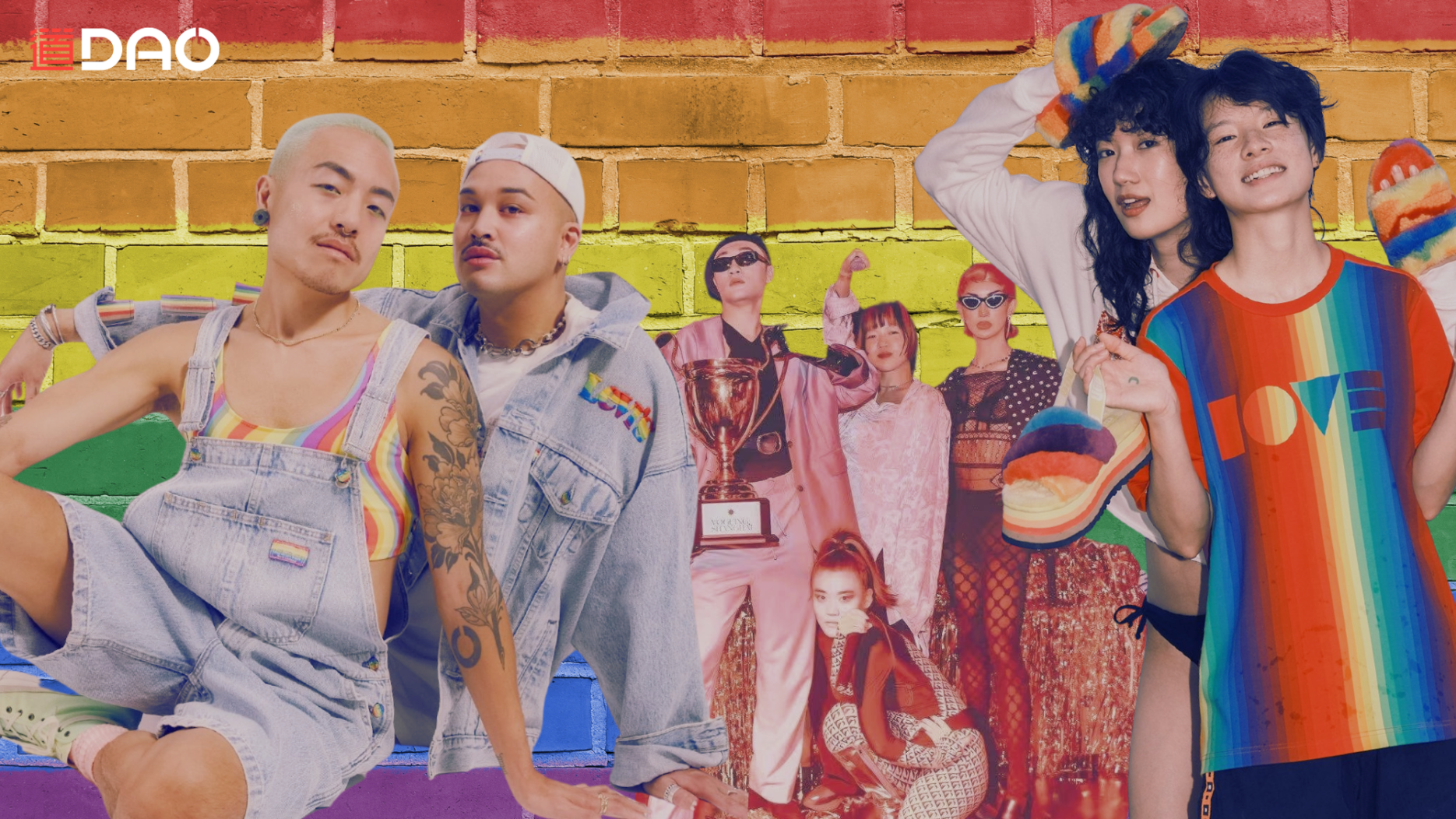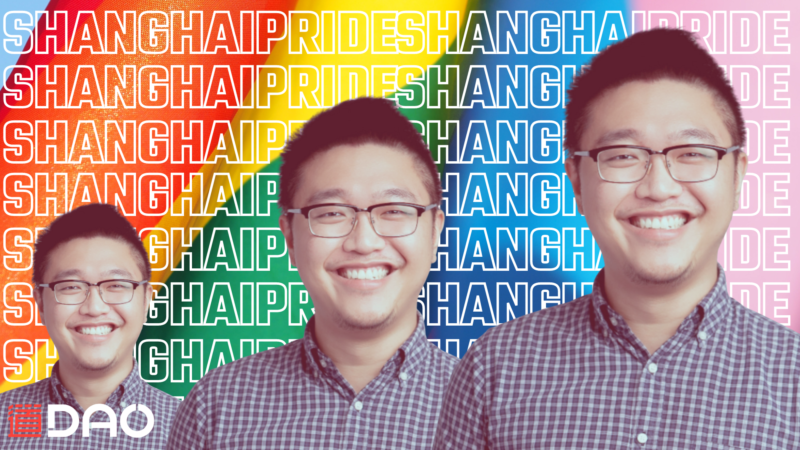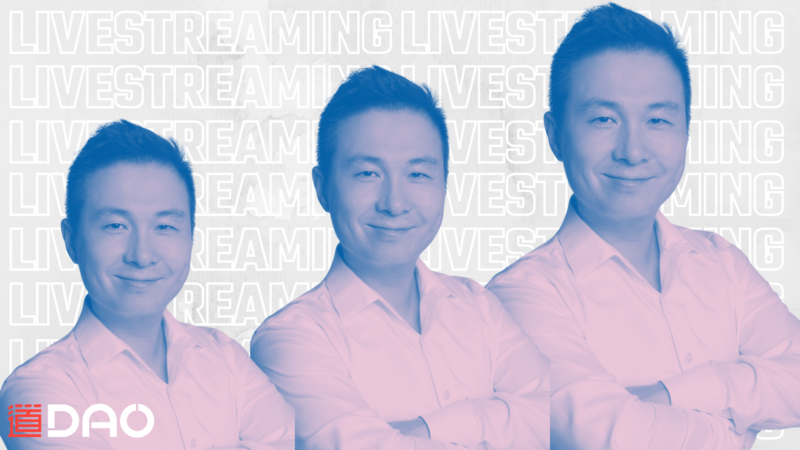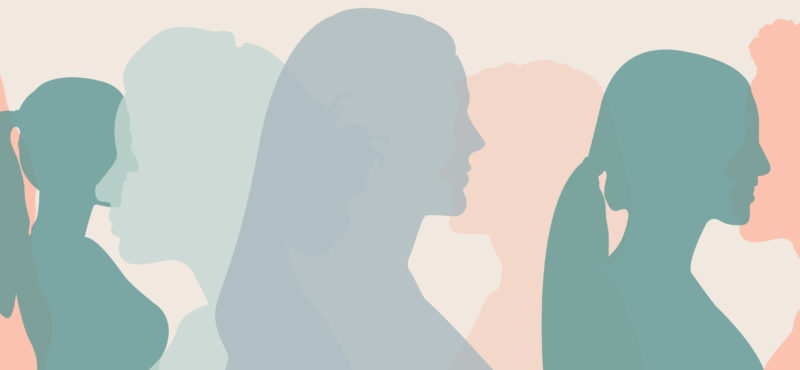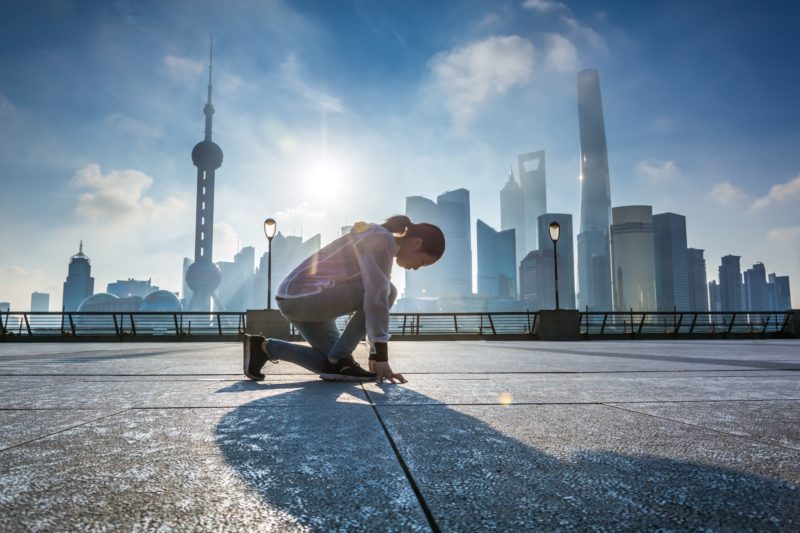The Dao Insights team have produced a mini-documentary that explores the LGBTQ+ community in China, and their representation in Chinese society, family, media, the workplace, and in marketing campaigns.
Read an edited version of the script below:
Every year, June marks Pride Month, a celebration of the LGBTQ+ community, its rainbow flag, and the movement’s progress globally.
With every country evolving at their own pace, you may be wondering: what’s happening in China?
Let’s take a moment to delve into the latest developments amongst the country’s estimated 70 million LGBTQ+ people.
Together, we’ll look at the community’s representation in Chinese society, family, media, the workplace, and in marketing campaigns.
LGBTQ+ recognition and societal attitudes
It’s 2021, and China has come an awful long way in the last two decades. Homosexuality was first decriminalised in 1997 and its mental disorder status was abolished in 2001.
It’s incredible what openness and more access to online information can do: people’s attitudes towards the LGBTQ+ community have been, and still are, gradually shifting.
But change remains slow. The lack of laws referencing sexual or gender minorities and the unclear legal status of LGBTQ+ organisations have often made it more difficult to advance recognition and rights.
While the urban middle class and young people are more accepting, being homosexual, and particularly being trans, is still not viewed as ‘normal’ in the mindsets of many Chinese people.
This is especially true when it comes to their own family.
A 2016 report by the UN found that out of several different communities, including the workplace and school, families are the least accepting towards sexual and gender minorities. Over half (57.6%) of the families surveyed said they were likely to reject an LGBTQ+ relative.
Why might this be?
Historically, Chinese culture places huge importance on social conformity, the family unit, and the continuance of the family line. As such, older relatives often regard being LGBTQ+ as a challenge to raising the next generation. This can make coming out extremely difficult.
However, the growing public support to legalise same-sex marriage became apparent in 2019 when an official announced that legalising gay marriage was one of the most popular requests among the public during the drafting of the first “Civil Code”.
Many believe that one of the largest barriers to increased acceptance is the lack of sex and gender education. In fact, the topic is completely excluded from China’s curriculum.
Sadly, as a result of this lack of acceptance, a report by the Beijing LGBT Centre and the Chinese Academy of Sciences found that China’s LGBTQ+ community is up to five times more likely to develop depression compared to the general public.
LGBTQ+ visibility in media
But there is hope. Social media has, in recent years, created more visibility for the community and has been a space to promote awareness.
Online users shared supportive comments on 17 May 2021 for the International Day Against Homophobia, Biphobia and Transphobia (IDAHOTB). The hashtag “#517 the day to stand against homophobia” gained over 1.02 billion views on Weibo.
Jing Daily told us:
“China’s younger generations, in particular those born post-90s and post-00s, are more open to discussing and sharing sexual preferences on social media. They have also provided huge support for public figures who do so. A prominent example of this is transgender influencer Abbily – she received nearly one million likes when she shared a post about her gender-affirming surgery on Weibo!”
There has also been an evolving conversation about pronouns in China with different forms of ta (TA or X也) being commonly used among the queer and transgender community, as well as appearing on creator’s pages on Gen-Z’s favourite video platform Bilibili.
Bilibili has also reacted to the growing acceptance by offering traffic support to lesbian creators.
Meanwhile, more and more young homosexual couples are coming out on Douyin, China’s TikTok. They see it as one of the safest platforms to share their daily lives with their partners due to its younger, more supportive audience.
China is also home to one of the world’s largest gay social apps, Blued, which made history when it went public in 2020. It has over 15 million users in China, 6 million of which use the app at least once a month and its founder, Ma Baoli 马保力 was awarded ‘Man of the Year’ by GQ China.
However, there are still barriers…
Earlier this month, Li Ying, a member of China’s national women’s soccer team, became one of a very small number of state-employed athletes to come out publicly. Her Weibo announcement received both positive and hate-filled comments and was later deleted.
This event highlights the pressure on LGBTQ+ celebrities. They feel the need to keep a low profile about their sexuality and identity or use subtle messaging if they want their career to survive.
The hugely popular dancer and TV show host Jin Xing is relatively silent about her trans identity within China. She has only spoken about it more openly abroad, including at the World Economic Forum in 2020.
Censorship regulations on TV also restrict what can be shown, and, in 2016, authorities banned depictions of gay people on TV shows.
This even led to parts of the Eurovision song contest being censored for featuring rainbow flags and tattoos relating to homosexuality.
Yet, despite this, ‘boy love’ dramas are becoming an increasingly popular genre in China. Based on novels that feature gay romance, the on-screen versions show no clear symbol of sexuality and blur the lines between romantic same-sex love and friendship. This seems to make it more acceptable to censors and their Chinese audience.
Word of Honor is one such ‘boy love’ show which has gained a huge following. Publication Radii has explored how fans have even sought to dissect the ‘true meaning’ behind the script. One online user claimed that he could tell through lipreading that the line “putting a dead rat in his mom’s sheets,” had been changed to “I went to bed with my lover and we could not get enough of each other” to avoid censorship.
Some luxury brands have even signed endorsement deals with the stars of ‘boy love’ dramas to indirectly associate themselves with the LGBTQ+ community in China.
LGBTQ+ inclusion in the workplace
So, what’s it like to be LGBTQ+ in the workplace?
Interestingly, China’s Law on the Promotion of Employment prohibits discrimination on the basis of ethnic background, race, gender, or religious belief, but does not reference sexual minorities.
As a result, many people choose to hide their sexual orientation from their colleagues. As of 2016, 75% of Chinese people hadn’t come out in their workplace, according to a UN survey.
However, a new report (Corporate LGBT+ Diversity and Inclusion China Report) by the Beijing LGBT Centre and Peking University found that employees are more willing to recommend their company, will be more committed to work, and will experience less discrimination themselves, if their employers are LGBTQ+ inclusive.
So, what actions have companies been taking to achieve this?
Some companies, such as Diversity & Inclusion Consulting, work throughout the year to support the LGBTQ+ community in China and promote inclusion in the workplace.
D&I Consulting co-founders Ivy Wong and Charlene Liu shared with us how the company had sought to inspire change during Pride Month. They held a job fair to offer the community a chance to network, find job opportunities, and attend career workshops. Business leaders from over 30 local and multi-national companies, including Apple, Bloomberg, EY, Deloitte, Microsoft, and PwC, attended, offered job vacancies, and shared how they have localised their company values in China.
Luxury e-commerce retailer Farfetch shared pictures of activities in their Beijing, Shanghai, and Hong Kong offices during Pride Month. They also held an Open Day exclusively for LGBTQ+ individuals and allies interested in Farfetch’s opportunities.
Pride Month and events to support the community
Outside the workplace, what other events are taking place for the LGBTQ+ community?
ShanghaiPRIDE was established in 2009 as an annual volunteer-run festival to show support for the LGBTQ+ community. It is China’s largest Pride event. The organisation holds art exhibitions, parties, a film and theatre festival, sports competitions, job fairs, and open days.
The main Pride event was cancelled permanently in 2020, which one of ShanghaiPRIDE’s co-founders described to us as:
“A setback for a lot of organisations that are working in different areas to support the community as Pride was unique in the way that it bridged different areas and organisations. However, it is positive to see some community organisations doing more events as a result, including those in other cities who have been inspired by ShanghaiPRIDE.”
Aside from Shanghai, most LGBTQ+ events and organisations are concentrated in other large cities, like Beijing, Chengdu and Guangzhou. Organisers in these cities also hold Pride events and queer film festivals.
Pride campaigns and marketing to LGBTQ+ consumers
In the west, rainbows dominate shopfronts and adverts during June in what is often described as “rainbow washing”. This is slightly different in China, where Pride Month campaigns are much more of a recent phenomenon.
How have brands celebrated Pride in China this year?
Nowadays the conversation about LGBTQ+ inclusivity is not restricted to June, as consumers become more sensitive to which brands are showing genuine inclusivity year-round.
This year, many companies started to engage consumers in May to coincide with the International Day Against Homophobia, Transphobia and Biphobia.
For example, luxury brand Dior took a strong stance in naming the previously mentioned trans celebrity Jin Xing as an ambassador for its signature fragrance, Dior J’adore.
On 17 May, Coca-Cola worked with glasses brand Bolon to produce an array of snazzy rainbow-coloured sunglasses which were given out for free in an online lucky draw. The two brands aimed to inspire a conversation of diversity and inclusivity with the slogan “Don’t be afraid of difference, see the rainbow” (不怕不同,看见彩虹).
In its third Pride campaign in China, Levi’s worked with Absolut to launch limited-edition gift boxes featuring both brands’ Pride products. Absolut also teamed up with ShanghaiPRIDE to sponsor their iconic RNBW party, as well as working with Taiwanese singer and vocal LGBTQ+ supporter Jolin Tsai.
Absolut wasn’t the only brand to get partying: Farfetch co-hosted an event with China’s first voguing and ballroom culture platform, Voguing Shanghai, on 17 June. The event brought together the LGBTQ+ community at the city’s most famous club, Shanghai 44kw.
UGG was another brand to promote its campaign ahead of Pride Month on 20 May for love-themed festival 520. The brand localised its global campaign with social media endorsements from Jiang Sida, a famous gay celebrity, and two lesbian influencer couples.
Unsurprisingly, a similar theme of self-love and acceptance ran through most campaigns, but it isn’t just international brands that are making their voice heard.
Chinese brands like the lingerie label Neiwai have expressed vocal support for the LGBTQ+ community in recent campaigns.
However, more explicit references to the LGBTQ+ community are rare among Chinese companies.
Hence, why Alibaba’s Tmall caused quite a stir when it showed an outwardly gay couple returning home to their family in its 2020 Chinese New Year campaign.
Sky Canaves of Jing Daily commented that foreign brands can learn from local Chinese businesses about how to develop more emotional and authentic campaigns which tap into societal and cultural phenomena, such as themes of family rejection and reconciliation.
As well as sharing far-reaching messages of acceptance during Pride Month, brands can resonate with their audience by understanding the intersectionality that exists within the queer community and focusing on a specific cause where they can impose change.
The road ahead for China’s LGBTQ+ community
So, what does the future hold for China’s LGBTQ+ community?
While China’s younger generations are becoming more and more accepting, there still is a long way to go to break down barriers linked to traditional family values and official societal recognition. We will see faster progress in urban areas which will, in time, trickle down to rural China.
Social media and conversations on them, no matter how controlled, will continue to help foster awareness about LGBTQ+ issues.
The number of brands launching Pride campaigns in China will keep growing. We will see more companies make bolder moves like working with LGBTQ+ influencers and engaging the community directly.
As 2021 Pride Month draws to a close, there are signs of progress for China’s LGBTQ+ community.
Many thanks to our contributors:
Raymond Phang – ShanghaiPRIDE
Ivy Wong and Charlene Liu – D&I Consulting
Media used:
Weibo “同志之声” https://m.weibo.cn/1664065962/4646313888845609
Videvo “Painting Pride Flag onto Face” https://www.videvo.net/video/painting-pride-flag-onto-face/455120/
8TV Mandarin News “亚洲第一! 台湾承认同性婚姻 众人激动哭了” https://www.youtube.com/watch?v=yE8e41hlw5U&t=13s
Inkstone “Shanghai Pride turns 10” https://www.youtube.com/watch?v=BnKm_4HG2P0&t=3s
South China Morning Post “Taiwan holds Asia’s first legal gay weddings, in a boost for LGBT communities” https://www.youtube.com/watch?v=8dT7SoHRwoM&t=3s
Videvo “Tracking Away from Pride Flag on Hand” https://www.videvo.net/video/tracking-away-from-pride-flag-on-hand/455119/
South China Morning Post “Hugs for LGBT support in China” https://www.youtube.com/watch?v=LEXme91w0AQ
Shanghai Pride “ShanghaiPRIDE 2020 Workplace and Community D&I” https://www.youtube.com/watch?v=MFrcmIGSp1s&t=12s
Videvo “Satellite Flying Over Denver” https://www.videvo.net/video/satellite-flying-over-denver/454996/
Videvo “Pride Flag Blowing in the Wind” https://www.videvo.net/video/pride-flag-blowing-in-the-wind/455121/
FRANCE 24 English “Forbidden love: Being gay in China” https://www.youtube.com/watch?v=pM6izogVLWA&t=250s
ABC News In-depth “Being Gay In Deeply Conservative China | Foreign Correspondent” https://www.youtube.com/watch?v=IoGYl_m5EYw&t=182s
Hafu Go “Studying 24 Hours With The World’s Smartest Students” https://www.youtube.com/watch?v=u35PM5xRdaA
Bloomberg Quicktake “China’s Largest Gay-Dating App is Transforming Society” https://www.youtube.com/watch?v=xX_HebeypLk
The AFC Hub “Hotshots: Li Ying (China PR) – 2018 AFC Women’s Asian Cup” https://www.youtube.com/watch?v=pLRqsmlacB4
CNBC International TV “Chinese TV star Jin Xing discusses gender reassignment | CNBC Conversation” https://www.youtube.com/watch?v=LgclsweVmwg
Eurovision Song Contest “Opening of the show and Flag Parade – Eurovision 2019” https://www.youtube.com/watch?v=rub73V1n0NU
Videvo “Business Men in Downtown Hong Kong” https://www.videvo.net/video/business-men-in-downtown-hong-kong/7934/
Shanghai Pride “ShanghaiPRIDE 2017 Recap Video 2017上海骄傲节回顾视频” https://www.youtube.com/watch?v=tyXfYFVG4h0
Videvo “Low Angle Handheld Shot Looking Up at Pride Flag” https://www.videvo.net/video/low-angle-handheld-shot-looking-up-at-pride-flag/678274/
Videvo “Tracking Shot of Pride Artwork Painted on Ground In Birmingham” https://www.videvo.net/video/tracking-shot-of-pride-artwork-painted-on-ground-in-birmingham/607468/
Videvo “Crowded Zebra Crossing” https://www.videvo.net/video/crowded-zebra-crossing/8160/
VOA News “Gay Chinese couple talks about acceptance in US vs. China” https://www.youtube.com/watch?v=XjIIp3YrTBw&t=19s
UGG官方微博 https://m.weibo.cn/status/4639276627395603
Levis中国 “Levi’s® 2021 Pride彩虹系列骄傲上市” https://weibo.com/tv/show/1034:4643225097666657?from=old_pc_videoshow
FARFETCH发发奇 “PRIDE MONTH PARTY” https://weibo.com/tv/show/1034:4649501840048232?from=old_pc_videoshow
FARFETCH发发奇 “无所畏,无所谓,只在发发奇” https://weibo.com/tv/show/1034:4643292131033128?from=old_pc_videoshow
FARFETCH发发奇 “无所畏,无所谓,只在发发奇|保留自我温柔坚定,ShirelyMilan” https://weibo.com/tv/show/1034:4643310225260633?from=old_pc_videoshow
FARFETCH发发奇 “无所畏,无所谓,只在发发奇|去做就好不必多言,莲龙青” https://weibo.com/tv/show/1034:4643310745354262?from=old_pc_videoshow
娱理 “《不一样又怎样》” https://weibo.com/tv/show/1034:4637786670825536?from=old_pc_videoshow
阵雨在听 “梁静茹&艾怡良《漂洋过海来看你》 和你一起看彩虹 @阵雨在听” https://weibo.com/tv/show/1034:4637762134147097?from=old_pc_videoshow
北京酷儿合唱团 “《秘密港》预告片 北京酷儿合唱团5.17国际不再恐同日特别策划” https://weibo.com/tv/show/1034:4637262114390138?from=old_pc_videoshow
MomentZ迷之 “做自己,享真我” https://weibo.com/tv/show/1034:4652762718470154?from=old_pc_videoshow
DIOR迪奥 “DIOR迪奥 真我女性” https://weibo.com/tv/show/1034:4639055674278010?from=old_pc_videoshow
瑞典驻华大使馆微博 “爱没有所以然” https://weibo.com/tv/show/1034:4504522643669028?from=old_pc_videoshow
Check out our other documentaries:




